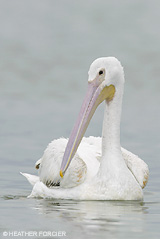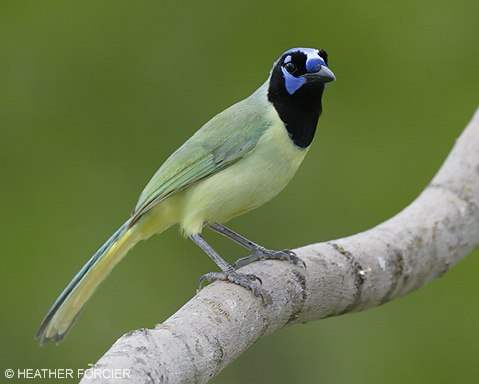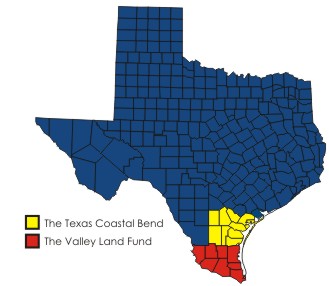 |
GULF
COAST AND SOUTH TEXAS BIRD PHOTOGRAPHY
Text and photos copyright Heather Forcier
The state of Texas boasts roughly 450 species of birds along its Gulf coast. A collaborative effort of agencies produced a series of marked sites called The Great Texas Coastal Birding Trail, a number of “loops” to explore for birds. Many locations are equipped with informational kiosks, trails, boardwalks, and/or observation areas.
 A
diversity of habitats and a fall-out area for passing migrants,
birding along the Texas coast can prove quite fruitful. A notable
feature is the approximate three hundred fifty miles of barrier
islands. Barrier islands run parallel to the coastline and are of
significant ecological importance. Sheltering the mainland from
the effects of winds and sea, intracoastal waterways in between
also benefit from similar protection. Constantly evolving, barrier
island sands are affected by the elements and may be naturally removed
or relocated elsewhere. Human trespass and development has promoted
their deterioration. Simply walking or driving on the dune vegetation
can weaken or kill it, and as the plant roots help anchor the dunes
this makes the sand more vulnerable. Signs or literature warn of
areas not to walk in order to protect the dunes.
A
diversity of habitats and a fall-out area for passing migrants,
birding along the Texas coast can prove quite fruitful. A notable
feature is the approximate three hundred fifty miles of barrier
islands. Barrier islands run parallel to the coastline and are of
significant ecological importance. Sheltering the mainland from
the effects of winds and sea, intracoastal waterways in between
also benefit from similar protection. Constantly evolving, barrier
island sands are affected by the elements and may be naturally removed
or relocated elsewhere. Human trespass and development has promoted
their deterioration. Simply walking or driving on the dune vegetation
can weaken or kill it, and as the plant roots help anchor the dunes
this makes the sand more vulnerable. Signs or literature warn of
areas not to walk in order to protect the dunes.
A mid-April trip to Texas for bird photography included two areas: the general location surrounding Corpus Christi on the Gulf coast and Roma in the Rio Grande Valley.
CORPUS
CHRISTI
This area provided for a broad diversity of habitats. Our initial
time was spent by invitation on a private ranch that had been set
up for bird photography. The majority of our time off the ranch
was spent along the coastal or intracoastal waters. We visited the
Packery Channel, Padre Island, Mustang Island, and Port Aransas
areas.
Driving on certain beaches is permitted and this was a productive way to scout for bird activity. We were often able to photograph right from the vehicle. This was not only convenient but several skittish birds seemed less so when we remained in the car. In other areas the birds were quite cooperative and we were able to photograph on tripods or from the ground. Birds found along the shorelines included Black-bellied Plovers, Willets, Sanderlings, Laughing Gulls, Franklin's Gulls (brief migrants), Royal, Common, and Least Terns, American Avocets, Black-necked Stilts, Ruddy Turnstones, and others.
We also found a good number of species at the Port Aransas Birding Center. A boardwalk environment with an observation tower, we found Roseate Spoonbills, White Pelicans, Black Skimmers, Least Terns, Tricolored Herons, Common Moorhens, Blue-winged Teals, and more.
ROMA
Roma is situated in the lower Rio Grande Valley of south Texas.
We had access to a private ranch set up with blinds for bird photography.
Feeders at the blinds were maintained daily and water was run in
some areas to collect into small pools. These stations attracted
an amazing variety and number of birds.
 With
our choice of any of the blinds we quickly found a favorite and
spent the majority of time there when not at the raptor blind. We
had the flexibility to set up perches to our liking and after some
fine tuning we photographed the birds from chairs inside the blinds.
With
our choice of any of the blinds we quickly found a favorite and
spent the majority of time there when not at the raptor blind. We
had the flexibility to set up perches to our liking and after some
fine tuning we photographed the birds from chairs inside the blinds.
Sheltered from the sun and a cooler of cold beverages by our side, we took frame after frame of birds as they came in. Green Jays, Golden-fronted Woodpeckers, Cardinals, Northern Mockingbirds, a number of dove species and several different thrashers were frequent visitors. There were also some unexpected but treasured appearances by a Pyrrhuloxia, Painted Bunting, Plain Chachalacas, and a few different flycatchers.
The raptor blind is set up near one of the highest tree snags in the general area. Crested Caracaras, Harris's Hawks, Ravens, and Turkey Vultures flew nearby and some would stop to perch. We parked our car some distance away and walked up so that our presence would be less noticeable. Some of our best luck came at times when we remained completely quiet. At one point even an oblivious woodpecker went to work on the exterior of the wooden blind. While there was substantially less activity at this location an investment of a few hours for the opportunity to photograph Crested Caracara and Harris's Hawks was well worth it in our opinion.
Heading back into town each afternoon for lunch we had our cameras in tow looking for what opportunities might present themselves. Seeing the Scissor-tailed Flycatchers perching frequently on the barbed wire fences at ranch perimeters, we took every chance we got to photograph them. Witnessing the grace of these birds in flight, especially with their long, forked tails was memorable. Several of the birds were willing subjects for brief periods, and we ended up getting some images we were pleased with.
The town of Roma is small but had all the services required during our visit, including an inn relatively close to the ranch and restaurants open during some of the odd hours we kept during our pursuit of bird photography.
The landowner was a gracious host and our experience at the ranch was fantastic!
TEXAS
AREA NATURE PHOTO CONTESTS
 Groups
in Texas have creatively established multi-objective photo contests.
In the general area surrounding Corpus Christi, the Texas Coastal
Bend Wildlife Photo Contest pairs land owners with nature photographers
who share in the prize proceeds for winning images. With much of
Texan lands privately owned, this partnership helps document the
many landscapes, plants, insects, animals and birds that might otherwise
be difficult to see. Placement in the contest is prestigious and
the resulting published photos provide educational benefit and exposure
for nature conservation. The organization that administers the contest
also actively participates in land conservation efforts.
Groups
in Texas have creatively established multi-objective photo contests.
In the general area surrounding Corpus Christi, the Texas Coastal
Bend Wildlife Photo Contest pairs land owners with nature photographers
who share in the prize proceeds for winning images. With much of
Texan lands privately owned, this partnership helps document the
many landscapes, plants, insects, animals and birds that might otherwise
be difficult to see. Placement in the contest is prestigious and
the resulting published photos provide educational benefit and exposure
for nature conservation. The organization that administers the contest
also actively participates in land conservation efforts.
Similarly there is The Valley Land Fund covering certain counties in south Texas within the Rio Grande Valley. Established originally to preserve a tract of land, it continues land conservation activities today while also conducting its nature photography contests. Landowners and photographers are again partnered and share in the prizes
For more information on the internet, visit:
| Text and images on this site are copyright Heather Forcier, all rights reserved. No downloading, hotlinking, or other usage allowed without express written permission. Images contain embedded digital watermarks. |